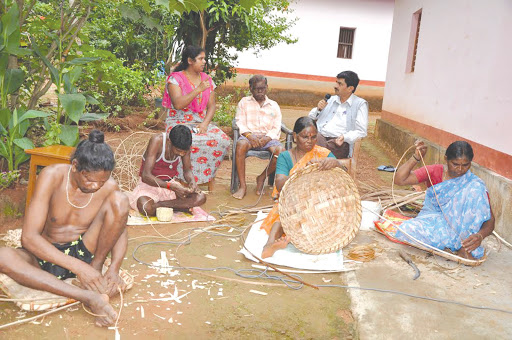India’s independence promised its countrymen equality, liberty and opportunities for a prosperous life. However, even after 75 years of independence, these ideas seem like little more than lofty hollow words for many tribal communities like the Koragas of Kasargod.
Primarily the inhabitants of Dakshina Kannada, the Udupi district of Karnataka, and the Kasaragod district of Kerala, South India, Koraga is a tribal community classified as a Scheduled tribe by the Government of India. Historically, they were considered untouchable by society.
Now banned, they were the victims of an infamous practice called ‘Ajalu’ that involved mixing human waste in their food while making them ride a buffalo in the Kambala race.
Koragas are led by the most senior person in the village, often known as Mooppan. He ensures the well-being of the members of the community. Basket weaving is their primary occupation. People communicate either in their language known as Koraga Bhasha or in Tulu. Mainly settled in Perdala of Badiadka panchayat in Kasargod district, they also have colonies in other panchayats like Enmakaje, Paivalike, Bellur, Puthige, Kumbale, etc.
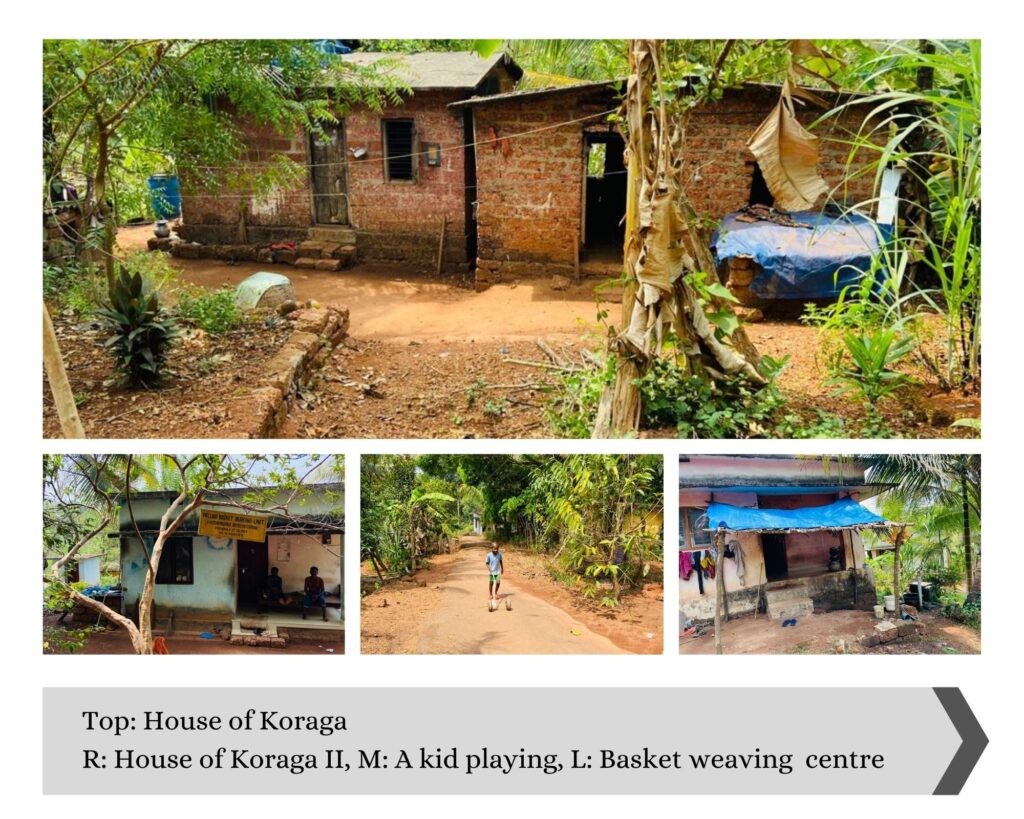
Over the years, the government schemes such as Pradhan Mantri Avas Yojna ensured them a colony of 45 houses with electricity connection. For water supply, the dependency remains on Kerala Water Authority which is unreliable in hot summers due to which a nearby well is the only source to quench their thirst.
Other schemes like the Indira Gandhi National Old Age Pension Scheme, where senior citizens aged sixty and above receive Rs 1500 monthly, and the Gaddika Programme that supports the creativity of states’ schedule tribes are good initiatives by the government. However, despite all these measures, the community still lacks the basic infrastructure for a respectable life.
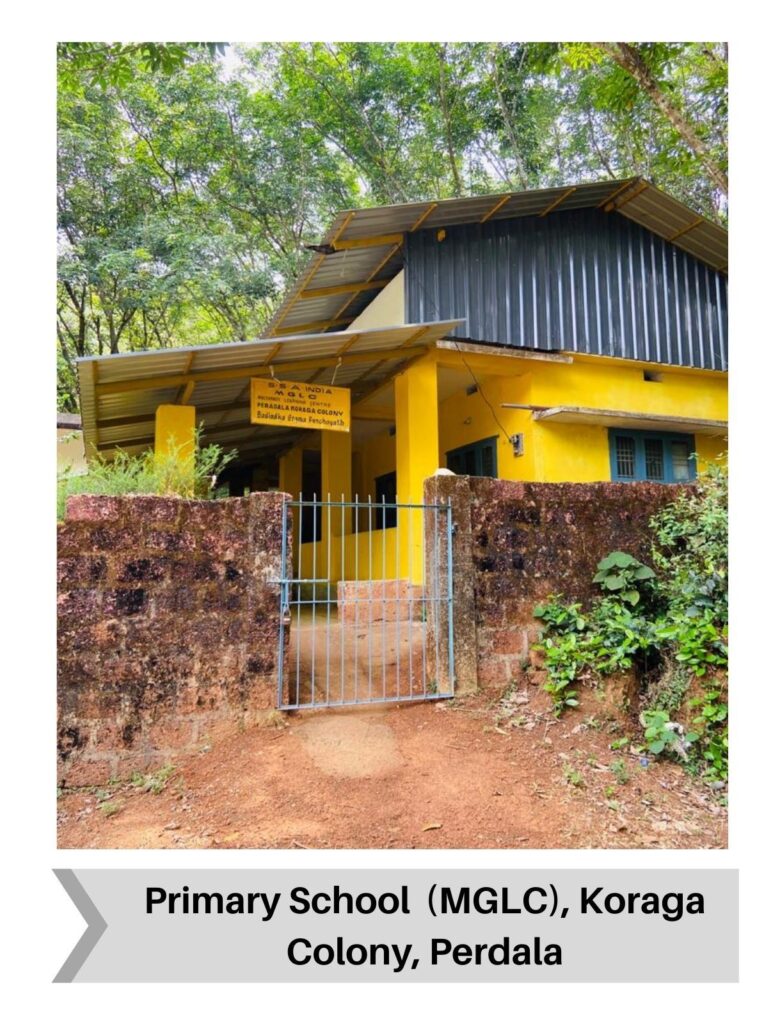
Education is yet to reach every Koraga house. The area has only one Government Primary School with only one teacher, teaching till fourth grade. To study high school the tribe depends on Badiadka town, and for higher secondary onwards Kasargod or Mangalore is the only option. A few of them managed to complete their intermediate and know the English language. Only two from the community have thus far completed a degree and are working outside the colony.
The condition of the health sector looks worrisome, as well. People depend on the Badiadka panchayat for medical support. The Primary Health Centre in Badiadka operates only till 4 p.m. the Community Health Centre opens till 6 p.m. After 10 p.m. medical assistance is literally impossible to find.
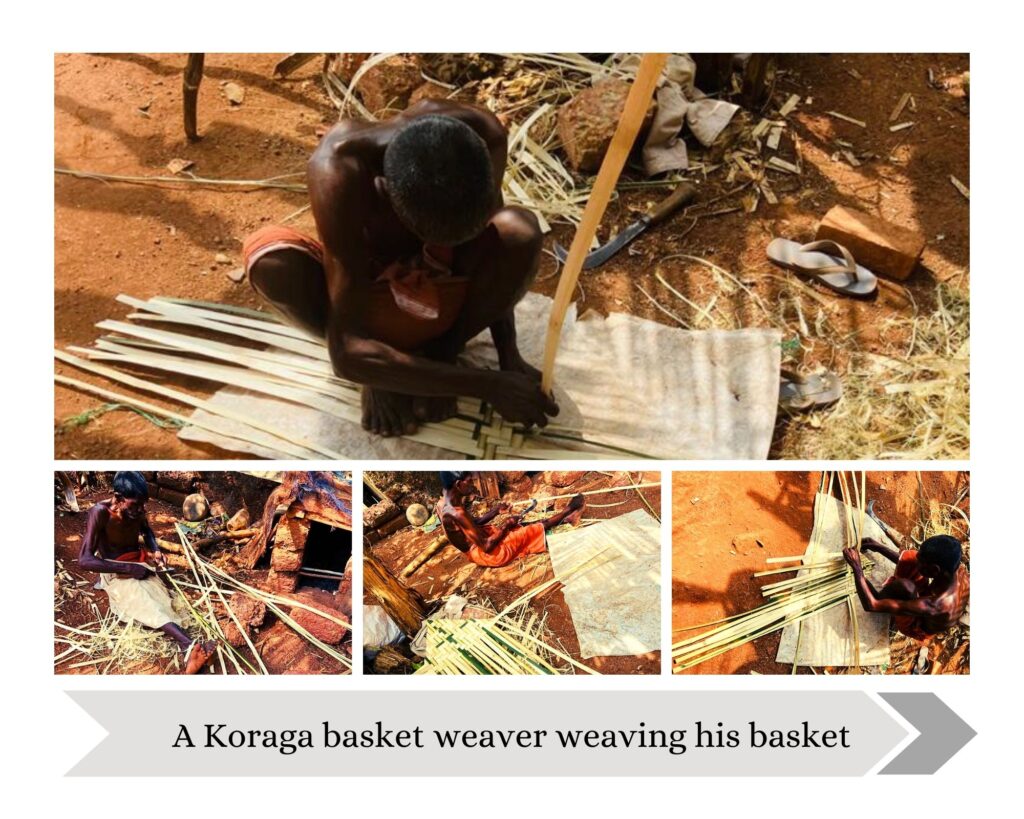
Poverty continues to be a big issue to the community as they still battle for a stable income source. Basket Weaving takes great efforts yet yields little income.
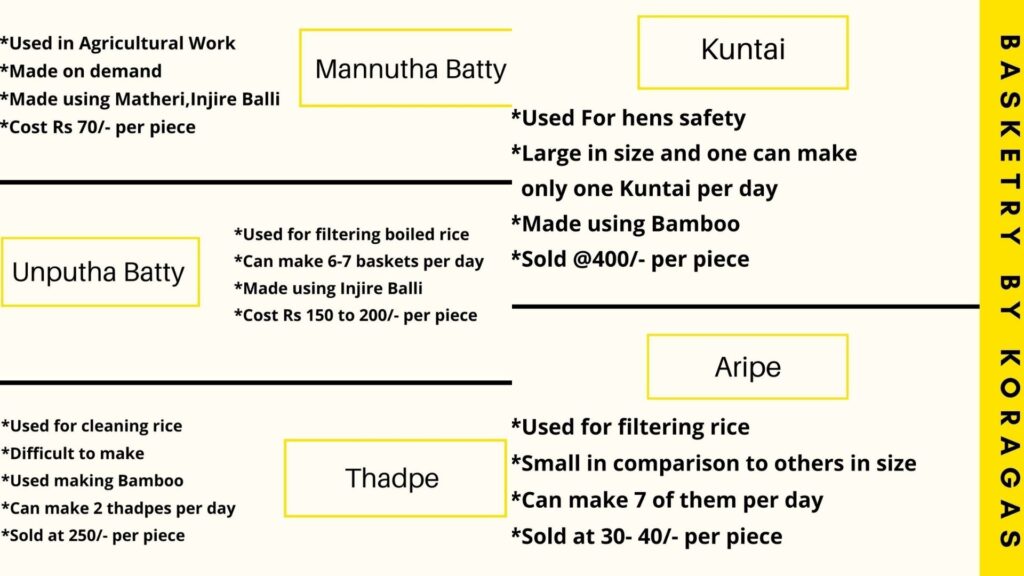
‘One full day’s effort is required to search for the raw material for Valli. Tadpa takes around 2-3 hours and Batti demands more time. We get INR 250 per Tadpa and INR 150-200 per Batti when we sell these products in the retail shops in the Panchayat’, says Chukarn, a basket weaver.
During the rainy weather, the women also work under the Mahatma Gandhi National Rural Employment Guarantee Act on odd days to supplement the income. However, the work opportunities have frequently reduced.
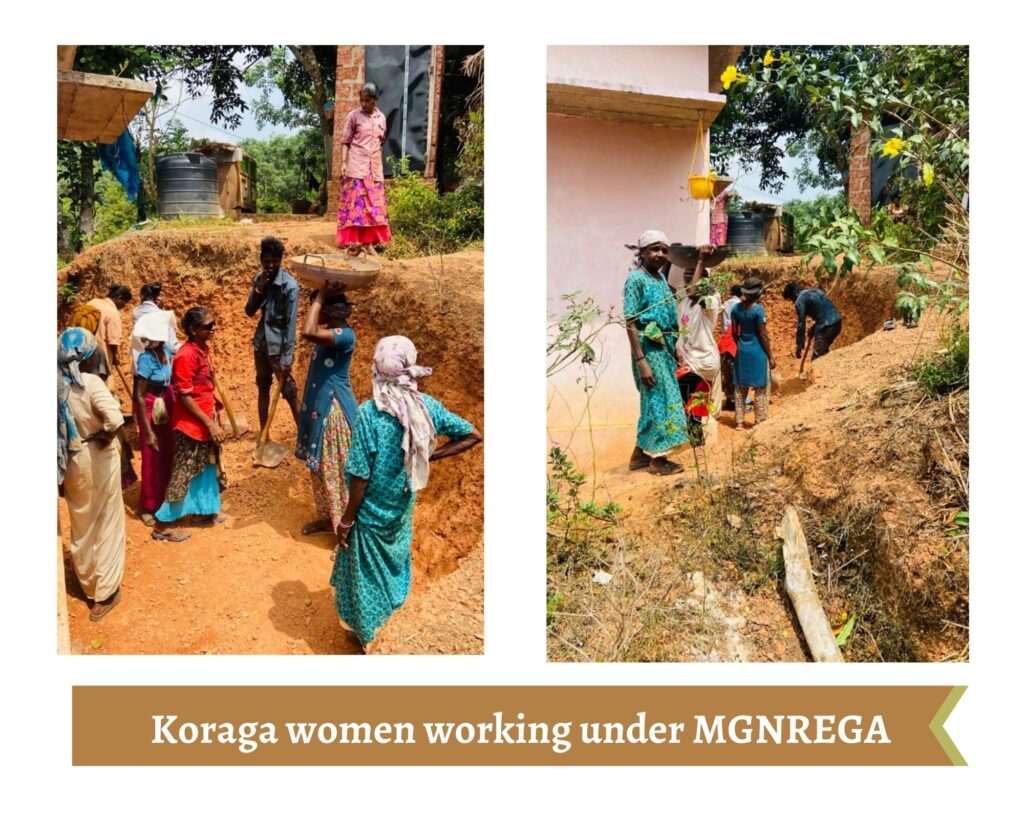 ‘They promised us of 100-days work, we received barely 50-days work last year’ says Angare – a Koraga Woman. The ration and food kits provided by Kerala Government and KMCC group helped them survive the pandemic times. Pandemic has fueled poverty as they are locked inside their colony.
‘They promised us of 100-days work, we received barely 50-days work last year’ says Angare – a Koraga Woman. The ration and food kits provided by Kerala Government and KMCC group helped them survive the pandemic times. Pandemic has fueled poverty as they are locked inside their colony.
At its current pace, it seems a steep challenge for India to succeed in achieving the United Nation’s Sustainable Development Goal No. 1 that aims ‘to end poverty in all its forms from everywhere. A holistic development approach towards these tribal communities like the Koragas from the side of policymakers and the executive could go a long way to alleviate the historical injustice that they continue to face to date.
Edited by Mohammed Sajid & Ajeesh

